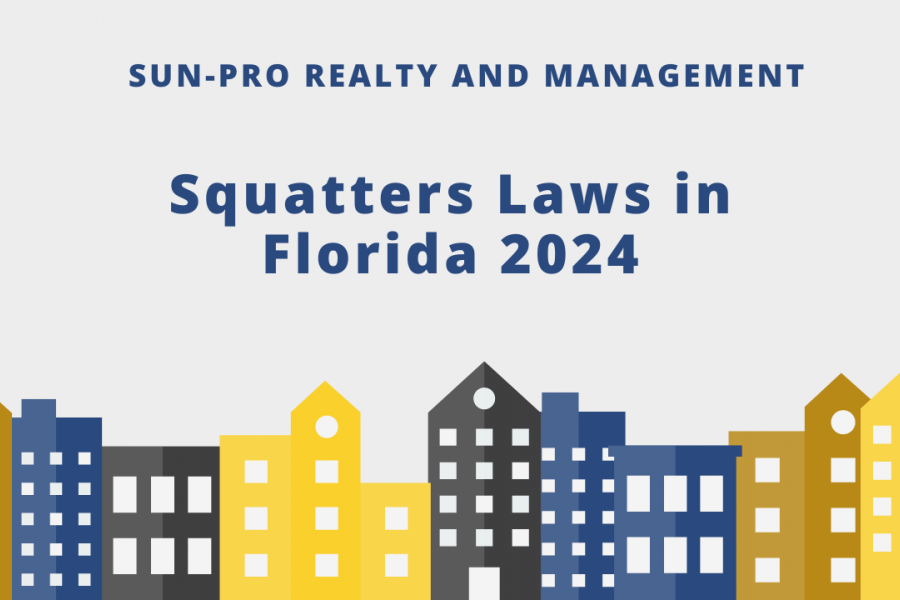
On May 15, 2024, Governor Ron DeSantis signed the "Property Rights" bill, also known as HB 621, into law. This new law helps protect homeowners' rights against squatting in Florida and all over the US.
Squatting is when someone moves into an empty building or space without permission. The HB 621 law is meant to give property owners stronger legal tools to deal with this.
Governor DeSantis made it clear that this bill is all about safeguarding homeowners' investments and keeping property values up. Passing HB 621 is a major step in making sure property owners can defend their rights and investments. This law lays out clear procedures and quick ways for people to deal with the challenges of unlawful occupation.
Understanding HB 621
House Bill 621 introduces several key provisions designed to streamline the process for property owners to address squatting incidents.
One major thing in the bill is that property owners can now ask the sheriff's office to kick out unauthorized people from their properties right away. This is a big improvement from before when the legal process took a long time, leaving property owners stuck while waiting for court decisions.

Property owners will have to pay hourly fees for the sheriff's office's services, but this will help law enforcement use their resources to deal with these situations. The bill lays out a clear and efficient plan for property owners to follow, cutting down on the red tape that used to slow things down.
Squatter Rights: Legal and Logistical Challenges
To fully appreciate the impact of HB 621, it is essential to understand what squatting entails and the legal challenges it presents.
Squatting occurs when individuals occupy a property without the owner's permission. In some cases, settlers may claim legal rights to the property through "adverse possession," a legal doctrine that allows individuals to gain ownership of the property if they openly inhabit and maintain it for a specified period, typically seven years in Florida.
Before the enactment of HB 621, squatters could exploit legal loopholes and procedural delays to prolong their unauthorized stay on a property. This often left property owners with limited recourse, as the eviction process could take months or even years.
The legal complexities surrounding squatters' rights added to the frustration of property owners, who found themselves trapped in lengthy legal battles. Recent incidents of illegal squatting have underscored the urgency of addressing this issue.

In several high-profile cases, property owners have faced significant financial losses due to property damage and legal fees incurred while attempting to remove squatters. These incidents highlight the need for a more efficient and effective legal framework to protect property owners' rights.
Implementation and Penalties
HB 621 is set to take effect on July 1, 2024, providing property owners with a clear timeline for when the new provisions will be enforceable. The bill also includes penalties for those who violate its terms, ensuring that there are consequences for individuals who engage in unauthorized occupation of properties.
The implementation of HB 621 is expected to deter potential squatters by introducing immediate and tangible repercussions for illegal occupancy. By empowering property owners with the ability to seek prompt action from law enforcement, the bill aims to create a more secure environment for property ownership and investment in Florida.
Comparison with Other States
Florida's approach to combating squatting through HB 621 is not unique; several other states have enacted similar measures to address this pervasive issue. For example, Oklahoma, New York, Alabama, and Georgia have all introduced legislation aimed at protecting property owners from unauthorized occupation.

In Oklahoma, recent legislation allows for expedited eviction processes, similar to the provisions of HB 621. New York has also seen efforts to strengthen property owners' rights, with laws that facilitate quicker removal of squatters. Alabama and Georgia have both implemented measures to streamline eviction procedures.
The effectiveness of these different approaches varies, but the common thread is a recognition of the need to protect property rights and provide swift remedies for property owners. By examining the successes and challenges of these states' legislative efforts, Florida can continue to refine its approach to ensure the best possible outcomes for property owners.
Conclusion
The signing of HB 621 represents a significant victory for property owners in Florida, providing them with the tools needed to address the challenges of squatting more effectively. By offering a clear and expedited process for removing unauthorized occupants, the bill aims to safeguard property investments and maintain the integrity of property ownership.
As Florida moves forward with the implementation of HB 621, property owners can take solace in the fact that their rights are being prioritized and protected. The broader implications of this legislation extend beyond individual property cases, contributing to a more stable and secure real estate market in the state.

For property owners and landlords, staying informed about these legal changes and understanding the new procedures will be crucial. Engaging with property management companies and legal professionals can provide additional support and ensure that property rights are upheld.
HB 621 is a pivotal step in addressing the issue of squatting in Florida. By empowering property owners and streamlining the eviction process, this legislation offers a more robust framework for protecting property rights and maintaining the value of real estate investments.
If you have more concerns about squatting and how to prevent it, it’s crucial to seek the help of a professional property management company like Sun-Pro Realty and Management. Reliable property managers are well-versed and updated on the rental laws in Florida, helping ensure that your property remains safe and in compliance with the law.
Contact one of our experts at Sun-Pro Realty and Management, and we will be happy to assist you.
